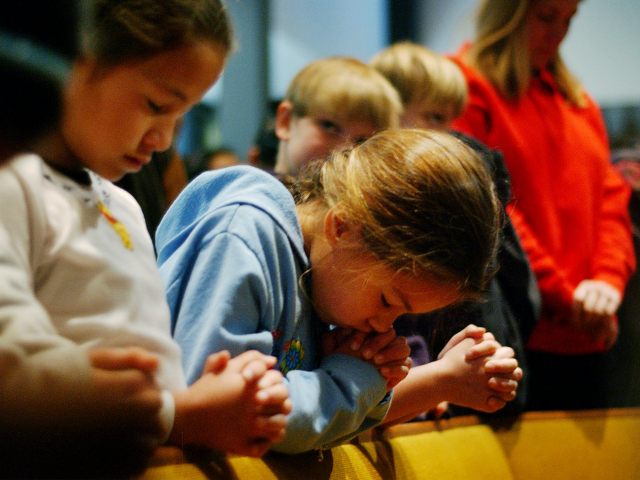A group of 12 major organizations of Christian educators is preparing to embrace changes in teaching and learning amid a continued rise in enrollments in faith-based K-12 schools, a press statement announced Monday.
“The last two years have shown the advantage Christian schools have in being nimble in serving students and their families with excellence,” said Lynn Swaner, chairperson of Converge 2022, a conference that plans to welcome nearly 750 attendees in San Diego in March to focus on how to meet the needs of the growing numbers of students coming to faith-based schools from the public sector.
Among the host organizations for the conference is the Association of Christian Schools International (ACSI), which, last year, saw a 12 percent increase in enrollment at its affiliated K-12 schools, the press statement noted.
As Breitbart News reported in December 2020, ACSI released a report at that time that showed 90 percent of Christian schools opened the 2020-2021 academic year with in-person instruction as planned, despite the Chinese coronavirus pandemic.
Swaner, who is also chief strategy and innovation officer for ACSI, believes having a relationship with local communities is key for those working in faith-based education, and points to Chattanooga Christian School (CCS), in Tennessee, which has grown to over 1,400 students. Swaner explained:
CCS has partnered with churches to do microschools, worked with the local community to do watershed projects on its own land and partnered with community-based organizations to provide inclusion services for students with disabilities.
The press statement particularly noted the move to expand Christian schools in urban areas.
Joel Gaines, who heads The City School in Philadelphia, said educators at his school have a “commitment to providing quality Christian urban education.”
“I believe students who learn within urban spaces are some of the most socially prepared, culturally exposed, and life-ready individuals,” Gaines added.
Converge 2022 will also address how social and family changes, as well as the impact of the coronavirus, have affected learning. Focal topics at the conference will include how to embrace students from broken families or those struggling in their schoolwork.
Two conference sessions to be offered are “Why Character Creates the Future,” and “Engaging Gen Z: The Bible, Jesus, and Teens Around the World.”
The conference is announced amid the decision by many American families to reassess their children’s learning environments, with more opting to remove them from government-run schools in favor of homeschooling, microschooling, faith-based schools, and other private education venues.
In December, NPR described as “troubling” the fact that public school districts are shedding students:
We compiled the latest headcount data directly from more than 600 districts in 23 states and Washington, D.C., including statewide data from Massachusetts, Georgia and Alabama. We found that very few districts, especially larger ones, have returned to pre-pandemic numbers. Most are now posting a second straight year of declines.
Chicago schools chief Pedro Martinez said, reported NPR:
When I talk to my colleagues … across the country, there’s a lot of concern right now. Pre-pandemic, we were already seeing enrollment decline. So it wasn’t that we had stability. What happened during COVID, we just saw an increase in the number that didn’t come.
Many education bureaucrats blame the coronavirus pandemic for their plunging enrollment numbers, but parents are pulling their children out of government schools because of COVID-related mandates and the infiltration of Critical Race Theory (CRT) concepts and LGBTQ activist materials in curricula as well.
In April, the U.S. Census Bureau found 11.1 percent of K-12 students in the nation are now homeschooling. That statistic represents a significant jump from the 5.4 percent who began homeschooling when schools closed throughout the country in the spring of 2020, and from the 3.3 percent who homeschooled prior to the pandemic.
Of particular note in the Census Bureau data is that homeschooling is surging among black families. The proportion of these families who have chosen homeschooling increased from 3.3 percent in spring 2020 to 16.1 percent in fall 2020.

COMMENTS
Please let us know if you're having issues with commenting.